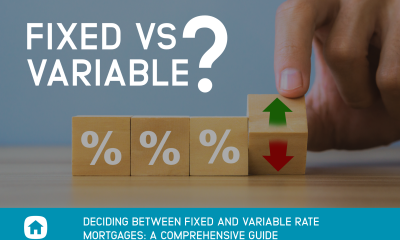(Special) – Do you get stressed out at the thought of doing your income tax return each year? Well, if you do, you’re probably not alone.
Tax experts recommend people start their tax preparation early by keeping good records and putting aside receipts throughout the year.
Create an envelope or file for all of your receipts and expenses and make sure you have all your tax information slips so that you have everything you need when you come to sit down and prepare your return or turn your information over to a tax professional to do it for you. Rushing around to get receipts at the last minute will only add to your level of frustration and stress.
It’s probably a good idea to make a checklist of what you need before you start to prepare your return which might contain the following things like last year’s return and notice of assessment. They can provide a wealth of information, serve as a guide for the current year’s return and show things like unused RRSP contributions and unused amounts for tuition, losses, moving expenses and capital cost allowance.
Along with your own personal information such as date of birth and social insurance number you also may need the same details for your spouse and/or dependants as well as their income if you will be claiming certain tax credits.
Then you will want slips for all income sources such as employment, pension, investment and rental income, as well as a host of other things that could include child care payments, RRSP contributions, home office expenses, charitable donations, medical expenses, tuition fees, student loan interest, and spousal support payments made or received, among others.
One of the easiest ways to boost your tax savings is to take advantage of all eligible tax credits and deductions from both provincial and federal governments.
Tannis Dawson, vice-president of wealth advisory services with TD Bank, says a lot of Canadians could be missing out on the caregiver and/or disability credit because they don’t know about them.
If you support a spouse or common-law partner or a dependant with a physical or mental disability you may be eligible for a non-refundable tax credit of up to $8,235. The amount you can claim depends on your relationship to the person for whom you are claiming the credit, your circumstances, the person’s net income and whether other credits are being claimed for that person.
The credit transferred to a supporting person is the amount above what is needed to take the disabled person’s tax to zero. The disabled individual must first prepare their tax return and then you will know the credit available to transfer to your return, but you do not need to send in any documents. Keep them in case the Canada Revenue Agency (CRA) asks to see them.
The CRA will require a T2201 disability certificate to be on file with a signed statement from a medical practitioner showing when the impairment began and how long it is expected to last. For children under the age of 18 the statement should show that the child is and likely will continue to be dependent on others for an indefinite duration because of their impairment.
There is another credit that may be called a caregiver credit of $6,986, which is income tested. If the dependent does not need the credit to reduce their taxes and their income is under $23,391, they can transfer it. The CRA may ask for a signed statement from a medical practitioner to indicate the impairment.
Dawson says the CRA website has lots of information organized by topics like medical expenses. There are a number of good apps available for things like tracking expenses and car mileage and there are lots of easy-to-use software packages available to help you in preparing and filing your return. Seniors and students with low incomes also can file by telephone.
If your tax situation is more complicated or you feel it is beyond your scope, getting a professional to do it for you might be the best option. What they save you in taxes or get for you in credits that you don’t know about may make up for their professional fees.
Talbot Boggs is a Toronto-based business communications professional who has worked with national news organizations, magazines and corporations in the finance, retail, manufacturing and other industrial sectors.
Copyright 2019 Talbot Boggs
Talbot Boggs , The Canadian Press

 Buying a Home5 years ago
Buying a Home5 years ago
 Credit6 years ago
Credit6 years ago
 Business4 years ago
Business4 years ago
 5 Mortgage Secrets7 years ago
5 Mortgage Secrets7 years ago
 Buying a Home6 years ago
Buying a Home6 years ago
 5 Mortgage Secrets6 years ago
5 Mortgage Secrets6 years ago
 News12 months ago
News12 months ago
 Business4 years ago
Business4 years ago





